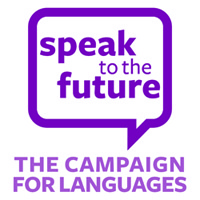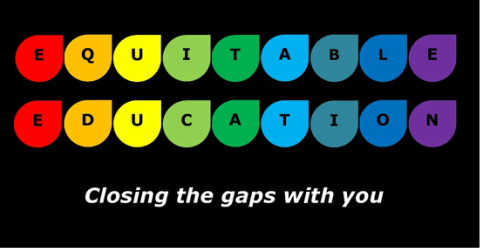
Readers of this blog will recall that the report highlighted the following key findings:
o The UK is suffering from a growing deficit in foreign language skills at a time when global demand for language skills is expanding
o The range and nature of languages being taught is insufficient to meet current and future demand
o Language skills are needed at all levels in the workforce, not simply by an internationally-mobile elite.
The 1000 words campaign is designed to encourage everyone to learn and use languages because they are important for everyone not just a select few. This is equally relevant whether you are learning a foreign language or English as an additional language or indeed part of a bilingual or multilingual family where different languages are routinely used in the home and community.
Equitable Education has a firm commitment to encouraging partners it works with, especially schools and educational organisations, to value, nurture and develop a lifelong love of languages because of the considerable benefits that accrue to individuals and society at large. We feel that a campaign such as the 1000 words campaign will raise the profile of the importance of languages and encourage educational organisations to take an active part so that our citizens are more at ease in learning languages and can at least converse at a basic level in another language.
Here are a few ways in which schools and universities can get actively involved in the 1000 words campaign. These are only suggestions and of course schools are free to choose and adapt these activities to fit their needs and communities.
Primary Schools
- Use the 1000 words concept to help inform parents about the value of language learning, particularly now that it is to become part of the national curriculum in England
- Make a public statement on your website about your commitment to high quality language learning, and what parents and children can expect
- Use the 1000 words concept in celebrations of the languages learned and spoken by children in your school and encourage children to be proud of their skills
- Make other languages visible and audible in the school through displays, assemblies, presentations etc.
- Develop creative interpretations around the concept of 1000 words
- Promote language learning and the concept of 1000 words among all teaching and non- teaching staff
Secondary Schools
- Use the 1000 words concept to help inform parents, pupils, and other teachers within the school about the value of language learning for everyone and the opportunities it opens up in later life.
- Make a public statement on your website about your school’s commitment language learning, and enabling every student to reach the 1000 words target
- Undertake to enabling every pupil to have their language learning recognised, even if they give it up before GCSE.
- Use the 1000 words concept to help create a positive ethos in the school about language, welcoming and recognising language competence however achieved.
- Have a policy which demonstrates how the school builds on pupils’ language learning in Key Stage 2 in order for every student to achieve the 1000 words target.
For further ideas and resources, go to
http://www.allanguages.org.uk/news/features/making_the_case_why_students_need_to_study_languages
Universities, or university departments
- Use a rough measure of progress towards 1000 words in promoting courses for students to learn a language alongside other subjects, and have the progress recognised in their degree transcription
- Use 1000 words as a benchmark in language learning as a way of encouraging more students to undertake study abroad
- Encourage students on Erasmus programmes to take advantage of language learning opportunities, and self-assess their progress towards 1000 words
- Develop policies on languages as part of an internationalisation strategy, mentioning the aspiration of 1000 words as a working knowledge of a language
- Communicate to potential applicants the high value the university attaches to competence in another language, especially a working knowledge indicated by 1000 words
- Develop creative interpretations of the 1000 words concept as a means to promote language learning
- Reach out to businesses and the local community to promote languages for employability, emphasising 1000 words as a working knowledge
- Encourage language learning among university staff and develop tools for them to assess their progress towards 1000 words.
For further ideas and resources, go to www.routesintolanguages.ac.uk, www.llas.ac.uk or www.ucml.ac.uk
Supplementary schools
- Use 1000 words as a way of highlighting the language element of the work you do
- Use the 1000 words logo to promote the learning of community languages
- Use the 1000 words campaign to develop or strengthen joint working with mainstream schools, businesses or universities
Further updates on ways in which we and our educational partners are engaging with the 1000 words campaign will be highlighted in future blog postings.
In the meantime, if you would like support in developing activities to promote a love of learning languages don’t hesitate to get in touch with us on [email protected]

 RSS Feed
RSS Feed
